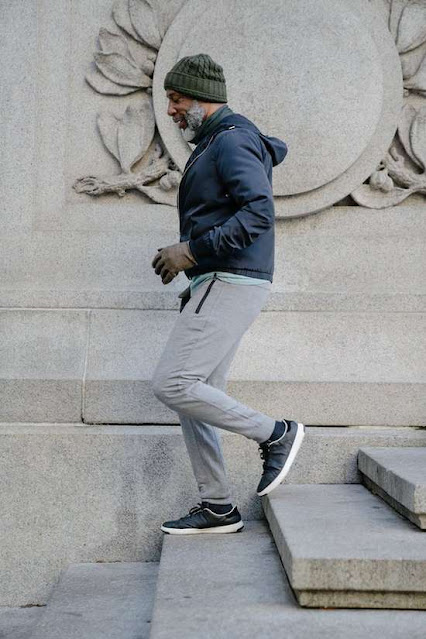This Article includes:
Healthy Ageing vs Delaying Ageing|| Do you need to Work Out?|| Ageing in the Future|| Exercise can keep your cells younger for longer|| Takeaway|| FAQ
Experts suggest that healthy ageing and delaying ageing are very distinct concepts. Since the beginning of time, people have been looking for an elixir—or several elixirs—to stop or slow down ageing. Science has come a long way in understanding ageing, right to the chromosomal level. While research is on to develop rejuvenation biotechnologies that would address ageing by controlling the cellular and molecular damages produced by it, exercise remains the greatest option in the goal of good ageing.
Healthy ageing vs delaying ageing
Yet, there is a distinction between healthy ageing and delaying ageing. With the assistance of healthy ageing vs delaying ageing, researchers and professionals from all over the world. Happiest Health dispels a few myths.
You May Also Read: Why do people Over age 50 avoid exercise?
#Myth 1: Exercise slows down the ageing process
Physical activity actually doesn't help slow down ageing, despite what is virtually often said, according to Michael Rae, a science writer at the SENS Research Foundation in California, USA. Instead, exercise increases physiological capacity and reserve such that, even while age-related reductions are the same, you maintain more functional capacity when ageing processes take effect.
Rae, a co-author of the book Stopping Aging, uses an intriguing comparison to describe this concept. Think about inflation, he says. When inflation strikes, having a sizable savings account is a positive thing since it indicates you have some room to absorb the price increase. But, the price rise is just affecting your purchases. they are the same for everyone.
According to some studies, those who exercise regularly experience a faster rate of physical performance decline than those who do not because they have a more functional reserve. Despite this faster decline, these individuals are still able to perform at a higher level.
“In some studies, in fact, the actual rate of decline in physical performance happens faster in people who exercise than people who don’t: they’re able to maintain higher performance in the face of this faster decline because of the extra-functional reserve.”
Muscle atrophy (loss of muscle mass) is inevitable with advancing age. Despite that, elite athletes who maintain an active lifestyle age gracefully with fewer health problems than those who lapsed into inactivity reported a 2008 research.
According to some studies, those who exercise regularly experience a faster rate of physical performance decline than those who do not because they have a more functional reserve. Despite this faster decline, these individuals are still able to perform at a higher level.
With ageing comes muscular atrophy, or the decrease of muscle mass. Despite this, a 2008 study found that exceptional athletes who keep an active lifestyle age gracefully and had fewer health issues than those who gave up exercise.
#Myth 2: Age is a good indicator of Ageing biomarkers, clocks, and age calculators
While fitness trackers that track exercises and body metrics are now popular, the next big thing might be age calculators and clocks that estimate how much of an impact exercise has on ageing. Unfortunately, there is currently no technology that can determine your biological age from body functions or a blood test.
It's unclear whether we now have good biomarkers of individual ageing, according to Rae.
In recent times, ageing research has garnered a lot of excitement due to age clocks, and specifically epigenetic age clocks — mathematically derived age estimators that are widely used to measure the age of tissues and cells, based on age-related chemical changes in specific areas of their genomes.
“While a number of such clocks have been demonstrated to be fairly robust in assessing unmodified ageing, it’s not at all clear yet that they accurately reflect changes in the trajectory of ageing in response to interventions [say, exercise] — or that they do so uniformly,” says Rae.
According to Rae, 1.5 years results in epigenetic clocks that are better. Before the algorithm to calculate biological age is made available to the public, though, it will take some time.
#Myth 3: By lowering telomere attrition, physical activity slows the Ageing process.
Telomeres are tiny protective caps at the ends of our chromosomes, according to Dr Amit Sharma, group head for ImmunoSENS at the SENS Research Foundation. Every time a cell in our body splits, [telomeres] get shorter and shorter as we age, and there is no way to stop this process. Telomere restoration is currently not possible with any medications. It's intriguing that regular exercise can lessen the damage.
Nonetheless, even though we're still not entirely sure why this occurs, it might be connected to a decrease in oxidative agents that could harm cells. Increasing the activity of DNA repair enzymes is another method. says Dr Sharma.
Rae claims that even though exercise may slow down telomere attrition, neither exercise itself nor exercise's effects on telomere attrition have an impact on how quickly people age.
Ageing in the Future
The concepts of regenerative medicine must be applied to the structure of the body at all levels, from organs and tissues to cells and down to the molecular structures within and surrounding them, asserts Rae, if we are to be freed from the effects of ageing.









0 Comments